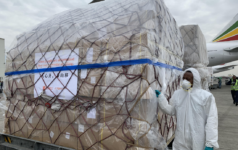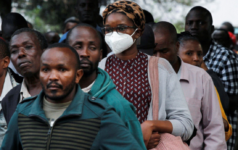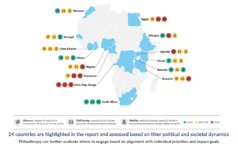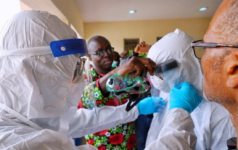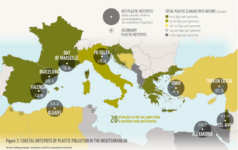Dalberg uses cookies and related technologies to improve the way the site functions. A cookie is a text file that is stored on your device. We use these text files for functionality such as to analyze our traffic or to personalize content. You can easily control how we use cookies on your device by adjusting the settings below, and you may also change those settings at any time by visiting our privacy policy page.
Nigeria’s economy is still in recovery from the last recession, and the pandemic presents new challenges on top of those the nation is already experiencing. But hope exists, too — in places that might not be obvious at the outset.
In ‘Charting the Future For Africa’s Largest Economy: Economic Impact of COVID-19 in Nigeria’, Dalberg quantifies the potential impact of Covid-19 and the current global economic situation on Africa’s largest economy, identifies potential actions to mitigate the economic impacts, and calls for deeper collaboration between the public, private, and social sectors.
The report shares that Covid-19 and the projected global recession have the potential to reduce Nigeria’s GDP by 4% in the moderate scenario and by 23% in the downside scenario. In the “moderate scenario”, Nigeria’s 2020 GDP declines by only 4%, driven by a quick and efficient Covid-19 response and an oil price war détente. In the downside scenario, Nigeria’s 2020 GDP could fall by as much as 23% from the previous year, driven by a wider COVID-19 outbreak and sustained global economic issues which constrain the economy considerably.
To create the findings, we have utilized a comparator methodology based on both the sector-disaggregated experience of Guinea, Liberia, and Sierra Leone during the Ebola Virus outbreak from 2014 to 2016 and Nigeria’s economic performance during past recessions and slowdowns (triggered in the past 20 years by global recession or oil price dynamics).
Micro, small, and medium enterprises (MSMEs) are spotlighted, and the impacts of the structural inequality in Nigeria are brought to life, including findings that suggest Covid-19 will differentially affect the poor, and groups such as women and youth. The report covers sectors including agriculture, industry (focused on manufacturing and infrastructure), and services (focused on arts and entertainment, education, finance, healthcare, and trade).
While sectors such as agriculture and healthcare might record increased focus and investment to secure food security and to increase healthcare capacity in the immediate response to Covid-19, increased strain on the economy could leave sectors such as trade, and arts and entertainment deeply affected and without support for recovery. Further, interventions may unwittingly exclude women and low-income individuals when they require access to bank accounts, identification, or collateral, or do not take into account the hardest to reach groups in their design.
“Nigeria’s economy is still in recovery from the last recession; thus Covid-19, the likely global recession, and the low oil price will put further pressure on the economy. Past analyses may have underestimated the potential economic impact of Covid-19 in Africa. For Nigeria, we quantify the potential impacts of both Covid-19 and the global recession, using recent examples from the West Africa (Ebola) and Nigeria (past recessions and slowdowns) experience”, said Nneka Eze, Partner and Nigeria Director at Dalberg Advisors. “Our analysis focuses on the role of and potential impacts on MSMEs as they contribute to 50% of Nigeria’s GDP and employ nearly 80% of the country’s workforce.”
To help mitigate the economic impacts in Nigeria, we propose priority actions that are sustainable and inclusive. These include:
- Addressing the usual suspect, including investing in infrastructure and high-potential sectors to support local productivity.
- Addressing the unusual suspects, such as closing the inequality gap for women and low-income communities, addressing the mental health risks that healthcare workers and the broader society face, and endowing a fund for the arts to maintain Nigeria’s role as a global influencer of art and culture.
- Delivering short-term actions, like providing cash/food aid, securing food supply chains, and expanding credit facilities to reach women and other marginalized groups by revisiting collateral requirements.
- Delivering medium-term actions to improve disaster preparedness by investing in healthcare, education, and infrastructure, and provide access to more credit lines to MSMEs.
Learn more in the report here.


